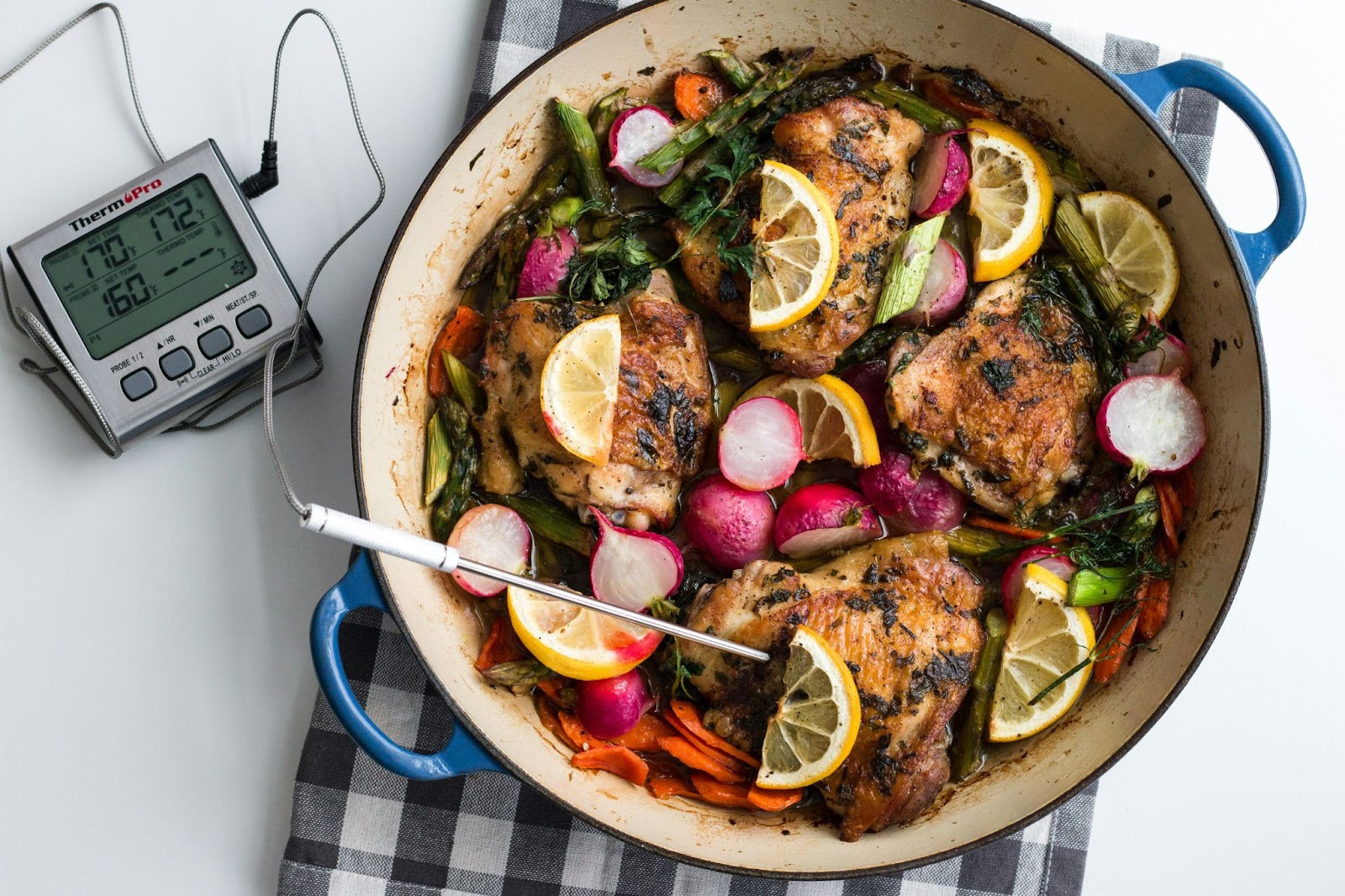The meal prep industry is booming, projected to reach $291.27 billion by 2032—but before you capture your slice of this growing market, you need to navigate the complex world of business licensing and permits. While the opportunity is massive, the legal requirements can feel overwhelming, especially when most guidance treats all food businesses the same way.
Here's the challenge: meal prep businesses occupy a unique space between home cooking and commercial food service, creating specific regulatory pathways that demand specialized knowledge. This comprehensive guide cuts through the confusion, providing a clear decision framework to help you choose the right legal path for your meal prep venture and avoid costly compliance mistakes.
Whether you're considering starting from your home kitchen or jumping straight into commercial operations, you'll discover the exact licenses, permits, and legal requirements needed to launch your meal prep business with confidence.
The meal prep industry's rapid growth has created regulatory gray areas that entrepreneurs must navigate carefully. Unlike traditional restaurants or simple home bakers, meal prep businesses operate in a unique space that bridges home cooking and commercial food service.
Your fundamental choice comes down to two distinct legal pathways:
The Cottage Food Law Path allows you to operate from your home kitchen under specific restrictions. This route typically limits you to non-potentially hazardous foods, caps your annual revenue (usually $15,000 to $50,000 depending on your state), and restricts your sales channels.
The Commercial License Path requires operating from a licensed commercial kitchen but removes most restrictions on food types, revenue limits, and distribution methods. This path involves significantly more regulatory oversight but offers unlimited growth potential.
The meal prep industry's complexity lies in how these pathways apply to subscription-based, pre-portioned meals. Recent legislative updates have expanded cottage food allowances in many states, with 47 states now permitting some form of home-based food production as of 2024.
Understanding which path aligns with your business model determines every subsequent licensing decision. A strategic choice here can save thousands in unnecessary fees while ensuring full legal compliance from day one.

Making the right choice between home-based and commercial operations requires evaluating your business model against specific regulatory criteria. This decision impacts everything from startup costs to growth potential.
Choose the Cottage Food Law Path if:
Choose the Commercial License Path if:
Cottage food operations typically cap annual sales between $15,000 and $50,000, though some states allow up to $78,000. Texas leads with no revenue cap for certain cottage food categories, while California permits up to $50,000 in gross annual sales for home-based operations.
Commercial licensing removes revenue restrictions entirely but requires significantly higher upfront investment. Commercial kitchen rental costs range from $10-25 per hour, while purchasing a commercial facility can require $150,000-500,000 in initial capital.
The type of meals you plan to prepare largely determines your legal path. Cottage food laws generally exclude potentially hazardous foods that require time and temperature control to prevent bacterial growth.
Typically Allowed Under Cottage Food Laws:
Requiring Commercial Licensing:
Understanding these distinctions helps you align your menu planning with your chosen regulatory pathway from the start.
Operating under cottage food laws offers an accessible entry point into the meal prep industry, but success requires understanding both the opportunities and limitations these regulations create.
Cottage food laws vary significantly by state, but most follow similar structural principles. These laws allow home-based food production under specific conditions designed to minimize public health risks while supporting small-scale entrepreneurship.
The National Agricultural Law Center reports that all 50 states now have some form of cottage food legislation, with recent trends favoring expanded allowances and simplified registration processes. However, the specific foods allowed, sales limits, and operational requirements differ dramatically between jurisdictions.
1. Research Your State's Specific Requirements
Start by consulting your state's Department of Agriculture or Health Department website. Many states maintain cottage food law summaries, but the actual regulations often contain crucial details missing from general guidance.
2. Complete Required Food Safety Training
Most states require cottage food operators to complete food handler training or food safety certification. This typically involves a 2-4 hour online course costing $10-50, though some states offer free options.
3. Register Your Cottage Food Operation
Registration requirements range from simple online forms to in-person applications with health department officials. Fees typically range from $25-200 annually, with some states requiring no registration fee at all.
4. Understand Labeling Requirements
Cottage food products must include specific labeling information, typically including:
Understanding your state's revenue limitations helps plan sustainable growth within cottage food parameters. States like Wyoming cap cottage food sales at $15,000 annually, while others like Michigan allow up to $25,000. California's $50,000 limit provides substantial room for growth within cottage food regulations.
When approaching these limits, many entrepreneurs transition to commercial operations rather than risk non-compliance. Planning this transition early prevents business interruption and ensures continued legal operation as you scale.
The cottage food landscape continues evolving, with 2024-2025 legislative sessions bringing significant improvements for home-based operators. Multiple states have expanded online sales permissions, increased revenue caps, and streamlined registration processes.
Notable recent changes include enhanced privacy protections allowing business registration numbers instead of home addresses on labels, expanded food category allowances, and improved interstate sales provisions in certain regions.
Commercial operations offer unlimited growth potential but require navigating a more complex regulatory environment. Success depends on understanding the layered requirements from federal, state, and local jurisdictions.
Employer Identification Number (EIN)
Every commercial meal prep business needs an EIN from the IRS, regardless of whether you have employees. This serves as your business tax identification and is required for banking, licensing, and tax purposes. Applications are free through the IRS website and typically process within minutes for online submissions.
Business Entity Registration
Most meal prep businesses benefit from forming an LLC or corporation to protect personal assets and establish business credit. State registration fees range from $50-500 depending on your location and entity type. Consider consulting with an attorney or accountant to determine the optimal structure for your specific situation.
Business License
Most states require a general business license for commercial food operations. This foundational permit establishes your legal right to operate a business within the state and typically costs $50-300 annually. Some states integrate this with food service permits, while others require separate applications.
Once you have your basic business structure in place, you'll want to focus on streamlining your operations to handle orders, subscriptions, and customer management efficiently as you scale your commercial meal prep business.

Regardless of which legal pathway you choose, certain requirements apply to all meal prep operations. Understanding these universal elements ensures comprehensive compliance from day one.
Every meal prep business owner and employee handling food must complete appropriate food safety training. Requirements vary by jurisdiction, but most follow ServSafe or similar nationally recognized programs.
Training typically covers:
Certification costs range from $15-75 per person and require renewal every 2-5 years depending on your location.
General Liability Insurance
All meal prep businesses need general liability coverage to protect against customer injury claims and property damage. Annual premiums typically range from $400-1,200 for small operations, with coverage limits starting at $1 million per occurrence.
Product Liability Insurance
Food businesses face unique risks related to foodborne illness claims. Product liability insurance provides crucial protection, with annual costs ranging from $500-2,000 depending on your sales volume and risk profile.
Commercial Property Insurance (For Commercial Operations)
If you operate from a commercial kitchen or own equipment, property insurance protects against theft, fire, and equipment breakdown. Costs vary widely based on location and coverage amounts.
Sales Tax Registration
Most states require meal prep businesses to register for sales tax collection, even for direct-to-consumer sales. Registration is typically free, but you'll need to file regular returns (monthly, quarterly, or annually) and remit collected taxes.
Resale Certificates
Commercial operations often need resale certificates to purchase ingredients tax-free from wholesalers. These certificates allow you to buy items for resale without paying sales tax upfront.
When setting up your meal prep business systems, consider using Bottle's integrated platform to manage orders, payments, and customer relationships while maintaining compliance with tax and reporting requirements.
Understanding your state's specific requirements is crucial for compliance. While federal guidelines provide a framework, states maintain significant authority over food business regulation.
California
Texas
Florida
Some states maintain more restrictive approaches to meal prep businesses, requiring careful navigation:
New York
Illinois
Selling across state lines triggers additional regulatory complexity. The FDA's Food Safety Modernization Act (FSMA) applies to businesses with annual sales exceeding $500,000 or those selling in interstate commerce.
Key interstate requirements include:
Learning from common mistakes can save thousands in fines and legal fees while protecting your business reputation.
The Problem: Many entrepreneurs assume they can operate under cottage food laws when their business model actually requires commercial licensing.
The Solution: Carefully evaluate your planned operations against cottage food restrictions before making licensing decisions. Consider factors like food types, sales channels, and revenue projections over 2-3 years.
The Problem: Poor documentation makes it impossible to demonstrate compliance during inspections or investigations.
The Solution: Implement systematic record-keeping from day one. Essential records include:
Modern meal prep software like Bottle's platform can automate much of this record-keeping while providing the documentation needed for regulatory compliance.
The Problem: Focusing only on state requirements while overlooking local zoning, health department, or business licensing requirements.
The Solution: Contact your local health department and city/county clerk's office to understand all applicable local requirements. Many jurisdictions have specific rules for home-based businesses or commercial kitchen operations.
The Problem: Assuming homeowner's or basic business insurance covers food-related risks.
The Solution: Work with an insurance agent experienced in food businesses to ensure adequate coverage. Standard policies often exclude food-related claims, requiring specialized coverage.
The Problem: Growing beyond cottage food limits without transitioning to commercial licensing.
The Solution: Monitor your revenue closely and plan your transition to commercial operations before reaching cottage food limits. This prevents business interruption and ensures continued compliance.

Understanding the time and financial investment required for legal compliance helps you plan your launch timeline and budget appropriately.
Week 1-2: Research and Planning
Week 3-4: Training and Registration
Week 5-6: Final Preparation
Total Timeline: 4-6 weeks Total Initial Costs: $500-1,500
Month 1: Foundation Building
Month 2: Licensing and Permits
Month 3: Operational Setup
Total Timeline: 3-4 months Total Initial Costs: $5,000-15,000
Annual Requirements:
As you plan your meal prep business launch, consider how Bottle's comprehensive platform can help streamline your operations while maintaining compliance with all regulatory requirements.
Limited testing is possible under cottage food laws in most states, but you must comply with all applicable regulations even for small-scale operations. Never sell food without proper licensing, as violations can result in significant fines and legal liability.
Cottage food laws typically exclude "potentially hazardous foods" that require time and temperature control. When in doubt, consult your state's cottage food law documentation or contact your local health department for guidance on specific recipes.
Yes, shared commercial kitchens (also called commissary kitchens) are often an excellent option for meal prep businesses. Ensure the facility maintains all required licenses and permits, and verify that your rental agreement includes appropriate insurance coverage.
Exceeding cottage food limits without transitioning to commercial licensing constitutes a violation that can result in fines, cease and desist orders, and potential legal liability. Plan your transition to commercial operations before approaching these limits.
Delivery operations may trigger additional requirements, including commercial driver's licenses, vehicle inspections, and expanded insurance coverage. Local jurisdictions often have specific rules for food delivery operations.
Renewal requirements vary by jurisdiction and license type. Most business licenses require annual renewal, while some permits may have multi-year terms. Maintain a calendar of all renewal dates to ensure continuous compliance.
Successfully navigating meal prep business licensing requires systematic planning and attention to detail. Here's your actionable roadmap to legal compliance:
The meal prep industry offers tremendous opportunities for entrepreneurs who approach it strategically. By understanding and properly navigating the licensing requirements outlined in this guide, you'll build a strong legal foundation for sustainable business growth.
Remember that legal compliance isn't just about avoiding problems—it's about building customer trust, protecting your investment, and creating a professional operation that can scale successfully. Whether you start with cottage food operations or jump directly into commercial licensing, the key is making informed decisions based on your specific business model and growth objectives.
Ready to launch your compliant meal prep business? Book a free strategy session to discover how the right technology platform can support your legal compliance while driving growth and operational efficiency.
Book your free strategy session with a meal prep growth advisor. We’ll discuss:



Book a call with a Bottle Meal Prep Advisor